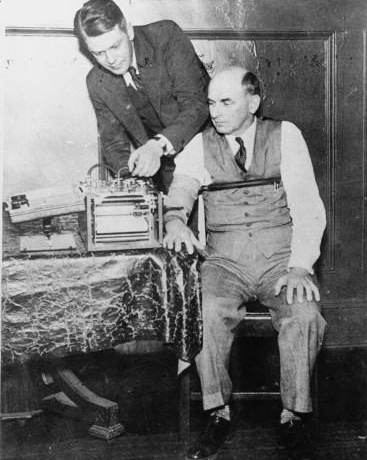The Special Counsel’s investigation into Russian contacts and coordination has secured guilty pleas for making false statements under 18 U.S.C. § 1001 from Michael Flynn, Rick Gates, Alex van der Zwaan, and George Papadopolous. (The last in that list, who was sentenced to 14 days imprisonment, seems to be having a hard time signalling that he’s fully contrite and fully accepts responsibility, recycling QAnon-type conspiracy theories all over Twitter, but whatever.)
False Statements
It’s no wonder that the Feds love charging people with false statements, because it’s a very straightforward statute. Basically, if you’re being interviewed in any proceeding before the legislative, executive, or judiciary branches, and you aren’t completely truthful about a material fact, you’re in jeopardy of being prosecuted for a crime punishable by up to five years in prison.
And being less than completely truthful is pretty broad. There’s the obvious scenario where you might be asked “Do you know how these drugs got in your car?” If you actually know how they got there, but you say “No,” that’s a false statement, and you can be prosecuted for it. If, however, you say “um, I don’t know!” because you’re understandably nervous, but you actually do know how those drugs got in your car, well, too bad. That’s potentially a false statement, too!

Walking Back a False Statement
What if you’ve given a false statement, and you’d like another chance to, um, clarify your response to agents? That’s the scenario that KT McFarland found herself in this week. (McFarland was Michael Flynn’s deputy during his short stint as Trump’s National Security Advisor.)
When investigators questioned her in the Summer of 2017 about Flynn’s contacts with Russians, she told them that she didn’t know what Flynn discussed with the Russians. A few months later, however, she changed her story and told investigators that she believed he discussed sanctions with Russian officials.
Apparently, Ms. McFarland is a very lucky woman, because contacting an investigator and correcting a false statement does not absolve you from making the false statement in the first place, even if you try to correct the false statement within a couple of days.
Although an individual sometimes can avoid a perjury prosecution by recanting a prior false statement, that result flows from a specific statutory provision applicable only to perjury cases. The statute under which the appellant was charged and convicted is devoid of any comparable safe harbor; it simply provides for criminal consequences if a person “knowingly and willfully makes any materially false, fictitious, or fraudulent statement or representation” in a matter within the government’s jurisdiction. 18 U.S.C. § 1001. The appellant cites no authority that would support transplanting the provisions of section 1623(d) into the unreceptive soil of section 1001. For our part, we see no basis for writing into section 1001 a recantation defense that Congress chose to omit.
United States v. Sebaggala, 256 F.3d 59, 64 (1st Cir. 2001).
I’ve seen cases where a subject contacted agents within three days to correct a false statement, and before the agents had been able to do anything with the previously provided false statements (and were theoretically non-material at that point). Unfortunately, the jury convicted him anyway, because there is no recognized safe harbor.
McFarland, as noted, is quite lucky indeed, because such leniency is rare. And this is why defense attorneys are always so adamant about subjects refusing to talk to investigators without contacting an attorney first. Even when you want to tell your side of the story.
